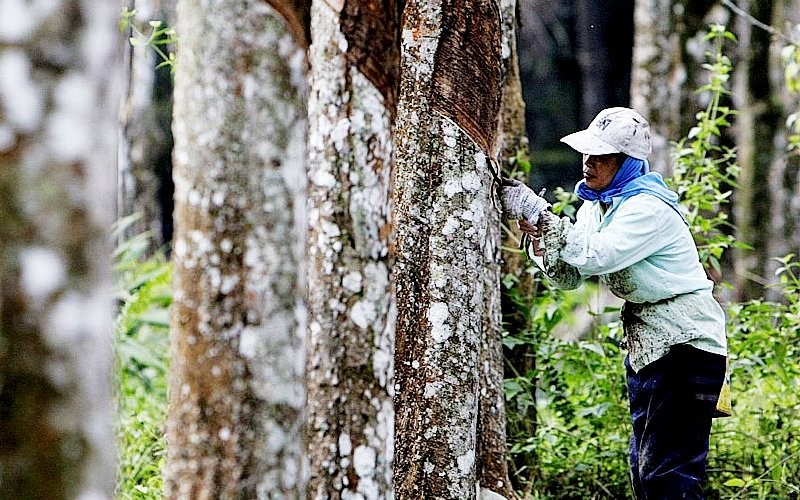
KUALA LUMPUR: The estimated 72,000 workers in the rubber industry in Malaysia can expect better treatment now with the introduction of a set of guidelines for their employers.
The “Addressing, Preventing and Eliminating Forced Labour in the Rubber Industry in Malaysia: A Practical Guide for Malaysian Employers” document is designed to assist employers, especially those with migrant workers, to identify the risk of forced labour in recruitment, employment and sourcing practices.
The guidelines, drawn up by the Malaysian Rubber Council (MRC) in collaboration with the International Labour Organisation (ILO) and with the support of the EU, will also help employers address, prevent and eliminate such practices effectively.
Plantation industries and commodities minister Zuraida Kamaruddin, who launched the guide today, said it was part of a comprehensive effort to deal with the forced labour issue affecting the rubber industry.
“I am confident it will help strengthen efforts to improve the industry’s reputation and the nation’s standing,” she added.
The guide is intended to help companies understand the definition of forced labour and the international standards, national laws and policies related to it.
It outlines certain principles, including due diligence and responsible business conduct, good practices, frequently asked questions and answers on preventing forced labour, as well as practical information on developing company policies.
“To avoid forced labour from occurring, this guide will act as a resource to protect employees’ rights while supporting Malaysia’s business community to enhance workers’ productivity eventually,” MRC chairman Daroyah Alwi said.
Supporting the government’s mission to educate and raise awareness on forced labour, the sustainability division of the MRC, in collaboration with the ILO, has carried out various awareness-raising initiatives.
In addition to the guide, a video and training programme for rubber industry stakeholders will also be launched.
“By investing in a decent and enabling work environment for sustainable enterprises, Malaysia has a unique opportunity to create more and better jobs, increase productivity and skills, and support growth across the rubber glove supply chain. This will ultimately increase its competitiveness in global markets,” said Panudda Boonpala, ILO deputy regional director for Asia and the Pacific.
The initiative is a joint effort by the government, businesses, labour unions, civil society and the ILO which supports the country’s first national action plan on forced labour as well as confirm Malaysia’s participation as an Alliance 8.7 Pathfinder country to accelerate efforts to end forced labour.
The ILO and the EU are supporting Malaysia’s rubber industry through the “Sustainable Supply Chains to Build Forward Better” project.
“Promoting decent work in global supply chain is a priority of the European Union. We are proud to support Malaysia’s effort to eradicate forced labour and to improve the work conditions of Malaysian and migrant workers alike,” said EU ambassador to Malaysia, Michalis Rokas.
“Apart from finding remedies for obvious human rights issues, these actions will increase Malaysia’s international reputation as a rubber industry leader, facilitate the export of its goods in compliance with international standards and prepare for the upcoming EU legislation in this area,” he added.
Source: https://www.freemalaysiatoday.com/category/business/local-business/2022/08/08/brighter-days-ahead-for-rubber-industry-workers/

